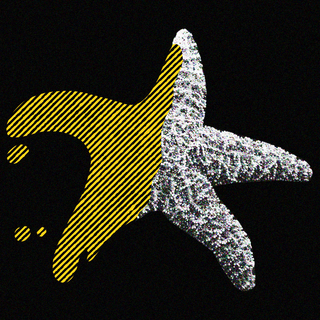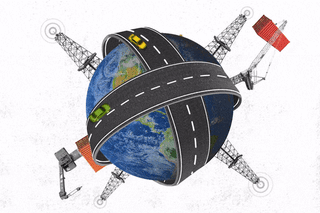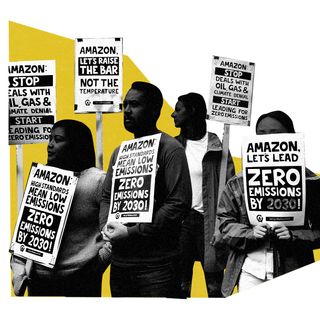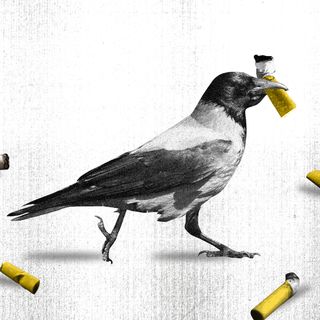
How Modern Progress Defined by Speed, Efficiency Is Killing the Planet — And Us
“[Alternatives] don’t valorize simplicity – they valorize health, time, community, land, these are all slow.”

The “lightbulb” moment symbolises humanity’s ticket to greatness, signifying a paradigm shift in innovation and progress, akin to the moment of discovering fire.
What’s left unsaid is that the humble light bulb sparked an avalanche of change in our cultural imagination. Electricity allowed us the gift of sight in the dark at the flick of a switch, no longer requiring the tedious and long-winded process of manually breathing life into a fire. This logic has pervaded our sense of progress ever since. How fast can we think? How fast can we move? How soon can we consume? Produce? Live?
The dominant frame of thought would have us believe that whatever costs – most notably, environmental – are being incurred due to progress are worth it due to the comforts we have acquired along the way and the rapidness with which we can keep expecting to acquire them.
This thinking culminated most recently in India in the form of a new, shiny little scheme from the 2022 Union Budget. The ‘Gati Shakti’ scheme, its crowning jewel, aims to increase connectivity, the efficiency of logistics, by building more ports, more roads, more highways. “The Gati Shakti scheme is targeted at aiding economic growth and sustainable development,” the finance minister said. “Development” is the keyword that keeps everyone happy, even as the powers that be constantly raze down the Earth to build more ways for us to travel faster, for goods and services to be delivered more speedily, in the name of progress and development. Our clothes, grocery deliveries, e-commerce carts and travel will reach us faster under this “development” and we can have a good life much faster too, just the way we like it.
The pandemic, for instance, has seen a deluge of innovation – not around public health, which is slow and requires patience, but around public convenience, which is faster. Delivery apps now promise 10-minute wait times for non-essential goods that you can buy in a flash however many times a day.
The emphasis on speed for trivial commodities has innumerable, longer-lasting costs. “In the name of comfort, we are creating more discomfort. The fast and furious rush of the world in the name of development is disastrous,” says Goldy M. George, Dalit rights activist and scholar.
Related on The Swaddle:
To Keep Our Coastal Cities From Drowning in Floods, We Have to Reimagine Land Use
Meanwhile, deep in the Atacama desert in Chile, a strange blight was to be beheld late last year. Heaps and heaps of unused and unsold fast-fashion clothing replaced the rolling sand dunes, with price tags still attached. It took an unspeakable amount of water, land, and labor to make all of it, only for it to return to the elements – never having been seen, touched, or felt by a single consumer. All this while e-commerce continues to support the fast-fashion industry’s need to rapidly cycling through outfit trends that die out faster than we’ve had time to process them.
The same applies to most other industries. In the 21st century – change is good. The faster it happens, the better we can say our lives are.
In other words, our lifestyle trends, the norms we’ve come to associate with a good life, are less agentic than they seem. It is less the case that communities drive demands for faster production of the commodities they use, and more that industries producing these things coerce demand from us.
Avantika Goswami, from the Centre for Science and Environment, too points out that this demand hardly comes from consumers first – it is manufactured by industries. Because when we give in to this manufactured need for speed and efficiency, it lines the pockets of those who make it. Take the fact that soon after the Gati Shakti announcement, steel, construction and logistics companies saw the highest gains in stock value.
And yet, this is precisely what is framed as “growth.” And “we associate growth in our minds with something that is good,” says Nityanand Jayaraman, environmental activist and journalist. But the discourse obscures whose growth, exactly, is at hand. And critiquing growth would be to imply that people don’t deserve, or shouldn’t want, a good life of convenience.
But the corpse of this model of comfort and development lies in the Atacama desert. Clearly, we don’t actually want or need so many new things; the rate at which they’re produced far exceeds our demand.
“We don’t need anything that is super fast, we need to shift back to methods that exist in the age of taking things slow. A lot of why we want speed could also have something to do with social media and reduced attention spans… Quickness feels like an advance when it’s not really the case,” says Disha Ravi, 23-year-old environmental activist from Fridays for Future.
Ravi’s words cut to the heart of why the ideology of speed is not to our betterment. The Internet revolution promised a lot, most notably faster, instantaneous communication. This is a good thing, to an extent. But the easy access to other people and information has turned it into a toxic heap of crossed wires where communication often breaks down, leading to misinformation and hate that threatens entire democracies, fuels conflict, and notably, fuels climate denialism. It epitomizes an age of alienation, keeping individuals in pursuit of faster goods and services instead of giving and receiving care as communities.
Somewhere along the way, we crossed over from being citizens to consumers, where we don’t owe anyone anything. We are reassured that it is okay to abdicate responsibility towards the community: individual comfort is the priority above all else. And the ability to make things happen with nothing more than a flick of the finger endows us with a sense of luxury, a sign of having made it. Time itself is optimized under this regime of lifestyle citizenship; and the cost is our very future on this planet.
For instance, the only thing we, as consumers, gain from more roads is perhaps a few hours saved in travel. But so much more is lost – and the costs of convenience are hidden from view. Even when they’re not, however, the notion that some must make sacrifices for the good of society overall persists, without questioning what “good” is. Right now, fast equals good and good equals more goods. Within this paradigm, making decisions as individuals to consume items at a slower rate does not fundamentally challenge what it means to live a comfortable or a good life.
***
Most notably, indigenous systems of knowledge – many of which value slowness and reject the hyper-individualistic focus on speed and efficiency oriented growth – are kept out in these industrialized processes, even as indigenous populations suffer the most. George talks about how indigenous values have been “swept under the carpet of capitalism and casteism.”
“This [idea of growth] is not representative of the indigenous people who have a different worldview, the trade unions, the transgender groups, they have extremely different ways of looking at the same problem,” Jayaraman adds.
For one, our relationship with nature itself has become one centered around treating it as a “resource” for constructing the pace and standard of life that we are currently accustomed to. “This isn’t to say we must go back to horses and bullock carts, but not to dismiss their importance. If the cost of a lightbulb is the displacement and death of thousands, it is better to live by the candle,” he says.
The long-term environmental effects of thinking about comfort in this way, however, will soon catch up with us. “We need to look at the inverse. Is it comfortable to live without oxygen? Without water?” asks George.
Reducing consumption and slowing down is touted as a “sacrifice.” But the sooner we recognize it as necessary, the more we can start to see “the overproducers, the fossil fuel industries and their associates, as attacking the real heart of our world: we see them not as purveyors of beneficial products, but as death-bearing destroyers,” notes Julia Steinberger, ecological economist at the University of Lausanne.
Related on The Swaddle:
Mumbai Fish Workers Escalate Protest Against Displacement, Loss of Livelihood
However, these mechanics are hidden from view in the name of comfort, progress, and an inexorable rush away from what we’ve come to see as “primitive” or “slow.” A few steps behind the material comforts we’ve become more than accustomed to lie “other” people are sacrificed for these comforts. A few steps ahead, our own people are sacrificed for the comforts of elites above us. And on and on it goes until humanity extinguishes itself – all in service of a quality life that never felt that good or comfortable to begin with.
5G and bullet trains, when they properly arrive, will once again reset the normal for what the pace of life should be, as opposed to what it needs to be. But what’s so good about speed? Other alternatives exist. “[These alternatives] don’t valorize simplicity – they valorize health, time, community, land, these are all slow,” says Jayaraman.
What do we do about all this? One framework to think through it is that of survival versus luxury emissions. Enter the “degrowth” school of thought. Proponents argue that changing the paradigm of growth to decenter the economy and slow down how we live to just what consuming and emitting what we need, would reduce the chasm between the global North and South.
There is also another model of governance itself, that doesn’t look for the big changes we need from the state or from corporations. Radical ecological democracy, as Ashish Kothari explains, “puts collectives and communities at the center of governance and the economy.”
Techno-optimists would have us believe that it is possible and desirable to maintain the current pace of life, while also being sustainable. However, emerging research suggests otherwise: “unless we tackle the ‘root causes of vulnerability’ (i.e. the systemic and historically laden inequities based on extraction, colonialism, anthropocentricism etc.) through social and behavioural approaches, these tech fixes are, at best, bandages,” notes Chandni Singh, senior research consultant at the Indian Institute of Human Settlements. “Transformational change, the type needed for grave problems, requires a complete reimagination of human-nature relationships, societal functioning, and changes in our financial systems.”
Slowing down, therefore, doesn’t mean renouncement. Clearly, speed – defined even scientifically as the rate of displacement – leaves people behind. On the other hand, nobody is likely to suffer from slowness. Think about it: slower workdays. A slower pace of life. More rest and relaxation. In an economy designed to churn out maximum labor for minimum returns in the name of efficiency, rest can be resistance in more ways than one. It allows, simultaneously, for bodies and the planet to heal.
Rohitha Naraharisetty is a Senior Associate Editor at The Swaddle. She writes about the intersection of gender, caste, social movements, and pop culture. She can be found on Instagram at @rohitha_97 or on Twitter at @romimacaronii.
Related


Amazon, Nestlé Among 25 Major Companies Exaggerating Climate Action Efforts: Study
